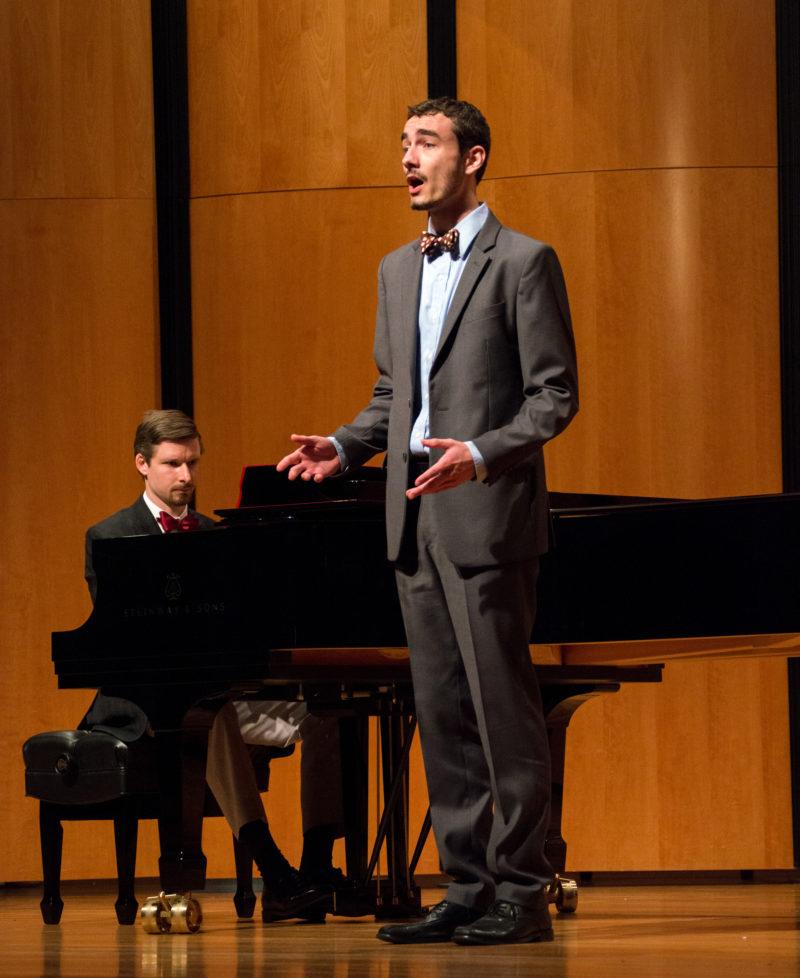This year marks the 10th anniversary of the Rosalind Franklin Vocal Excellence Award Competition. Juniors and seniors studying applied vocal instruction at Trinity are eligible to sing for scholarship money and a performance opportunity.
Professor Emerita Rosalind Phillips joined Trinity’s faculty in 1961 and poured out almost three decades of passionate voice teaching into Trinity music programming until her retirement in 1989. The award was established in her honor. The first-place singer is awarded an $800 scholarship and the opportunity to perform with the Trinity Symphony Orchestra in the spring. The first runner-up receives a $300 scholarship.
Phillips passed away in 2009 but she left behind a legacy of enthusiasm that reaches beyond vocal technique. Phillips helped young singers become well-rounded people in the pursuit of perfecting their craft. Her standards of excellence and hard work are reflected in the audition requirements.
For the competition singers prepare three pieces: an aria, an art song and a song of personal choice. An aria is a long song typically in opera or oratorio style. Art songs are built for recitals and often act as a sort of musical setting for poems or text. At least one piece must be in English and another must be in a foreign language.
The competition in is two rounds, the first of which occurred on Oct. 25. Five finalists were selected from eight competitors by music faculty for the final performance round.
“Every judge has a different set of criteria in mind when they judge, but for the most part we are looking for the total package,” said assistant professor of music Jacquelyn Matava. “The singers should sing with good vocal technique “” good breath management, pretty tone, dynamic contrast and also [they] should present their pieces well, “¦ communicate the text and help us understand the translation if it’s in a foreign language and use facial expression to show the emotions. Additionally, we want to see contrast between the three pieces.”
However, the finalists will see some unfamiliar faces in the second round, as an entirely new panel of judges will be formed using figures outside of Trinity’s music community.
“This competition has been in place for a while, so it runs smoothly, but probably the hardest part of it is the judging,” Matava said. “Everyone has a unique voice and different strengths and weaknesses, so it is always hard to rank the competitors. That is why we always have guest judges for the finals, judges who don’t know any of the singers and are therefore judging completely objectively.”
Vocal finalists this year include Shane Bono, Emma Lucero, Hannah Susman, Kendall Walshak and Hui Ting Wu. They will compete in the final round on Nov. 5 for the scholarship, as well as the opportunity to perform additional solo piece for the judges.







